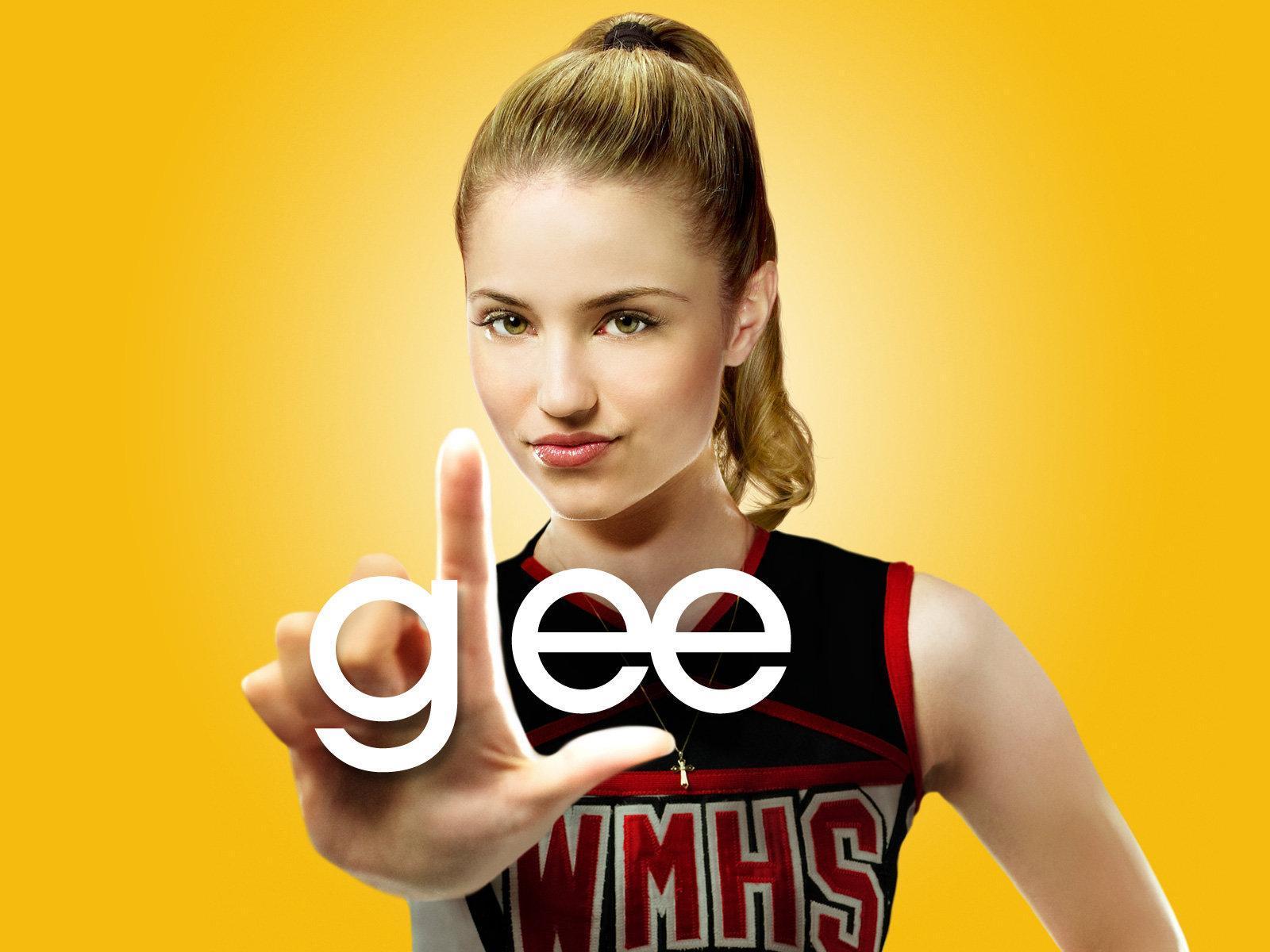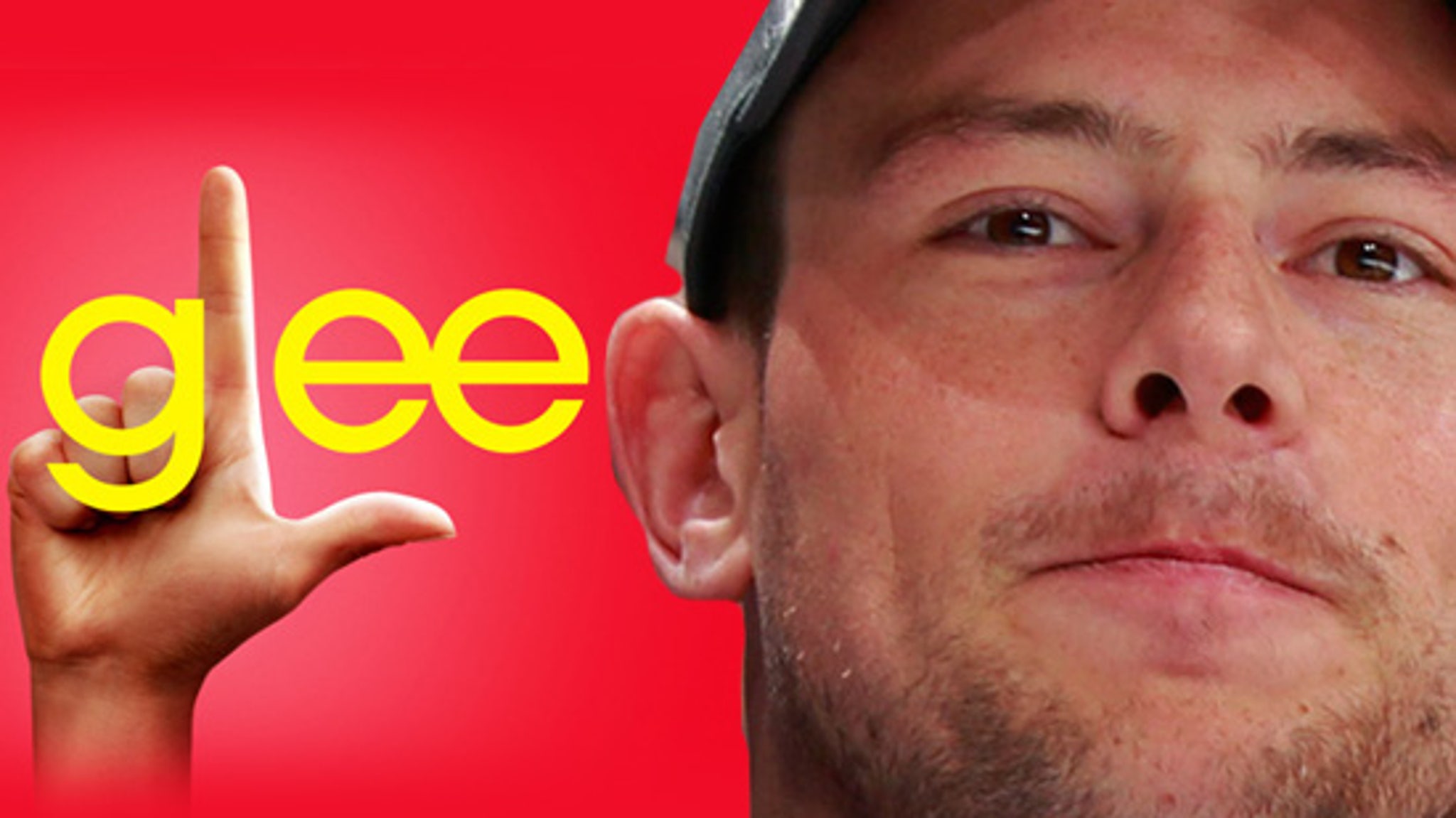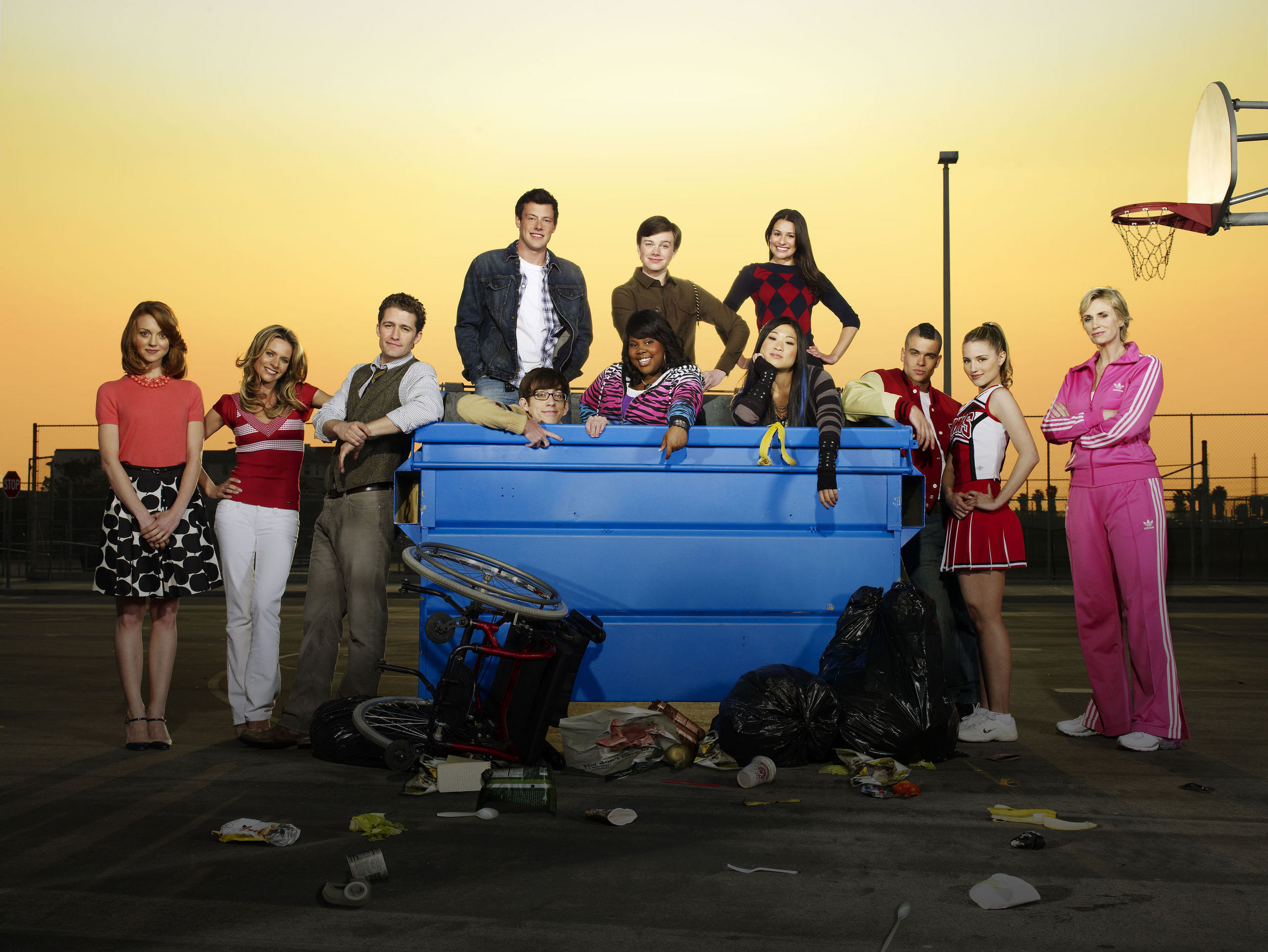So, you know that show called Glee? Yeah, the one that made us laugh, cry, and sing our hearts out? Well, the death of Glee wasn’t just a TV finale—it was a cultural moment that left fans all over the world feeling a mix of nostalgia, sadness, and gratitude. Let’s face it, Glee was more than just a musical dramedy; it was a phenomenon that changed the TV landscape forever. But why did it end? And what does its legacy mean for us today? Let’s dive in, shall we?
When the curtain fell on Glee in 2015, it wasn’t just the end of a show—it was the end of an era. For six seasons, Glee took us on a rollercoaster ride of emotions, from the high school drama of McKinley High to the heart-wrenching performances that left us in tears. It wasn’t just about singing and dancing; it was about representation, inclusion, and the power of music to bring people together. And when the death of Glee happened, it left a void in our lives that we’re still trying to fill.
But here’s the thing: endings are part of every story. And while the death of Glee might have felt like the end of something beautiful, it also opened the door to new beginnings. So, buckle up, because we’re about to take a trip down memory lane, exploring the rise, fall, and legacy of Glee—and why it still matters today.
- Michael Jackson And Lisa Marie Presley The Untold Love Story That Shook The World
- Taylor Swifts Net Worth The Untold Story Of Her Musical Empire
Table of Contents
- The Death of Glee: A Cultural Phenomenon
- The Birth and Rise of Glee
- A Journey Through the Seasons
- The Tragedies That Shaped Glee
- How Fans Reacted to the Death of Glee
- The Lasting Legacy of Glee
- Cultural Impact and Influence
- Criticism and Controversy
- What’s Next After the Death of Glee?
- Final Thoughts on the Death of Glee
The Death of Glee: A Cultural Phenomenon
Okay, let’s get real for a sec. The death of Glee wasn’t just the end of a TV show; it was the end of a cultural movement. Created by Ryan Murphy, Brad Falchuk, and Ian Brennan, Glee burst onto the scene in 2009 with a fresh take on musical dramas. It was quirky, fun, and unapologetically itself. But as with all good things, it had to come to an end. And when it did, it left a mark on pop culture that’s still visible today.
But why was the death of Glee so significant? Well, for starters, it wasn’t just a show about singing and dancing. It was a show about people—real people with real struggles. It tackled issues like bullying, coming out, body image, and even mental health. It gave a voice to the underdogs, the outsiders, and the misfits. And in doing so, it became more than just entertainment—it became a movement.
So, as we explore the death of Glee, we’re not just talking about the final episode. We’re talking about the impact it had on its fans, its cast, and the world of television as a whole. Because even though the show ended, its legacy lives on in the hearts of those who watched it.
- How Many Seasons Of Suits The Ultimate Guide For Fans
- Best Retinol Cream The Ultimate Guide To Transform Your Skin Game
The Birth and Rise of Glee
Before we talk about the death of Glee, let’s take a step back and look at how it all began. Glee premiered on Fox in 2009, and from the very first episode, it was clear that this was something special. It was like nothing else on TV at the time. It had a diverse cast, a killer soundtrack, and a message that resonated with audiences all over the world.
From Idea to Reality
Ryan Murphy, the brainchild behind Glee, wanted to create a show that celebrated music and diversity. He drew inspiration from his own high school experiences, where he was part of a glee club. And let’s be real, who doesn’t love a good underdog story? The show followed the misadventures of the New Directions, a glee club at McKinley High School, as they navigated the challenges of high school life while trying to win competitions.
But it wasn’t just about the music. Glee was groundbreaking in its representation of LGBTQ+ characters, people with disabilities, and other marginalized groups. It gave a platform to voices that weren’t often heard on mainstream TV, and for that, it deserves a round of applause.
The Cast That Made It Magic
Of course, no discussion of Glee is complete without mentioning its incredible cast. From Lea Michele’s powerhouse vocals to Chris Colfer’s witty humor, the cast brought the characters to life in a way that felt authentic and relatable. Here’s a quick breakdown of some of the key players:
| Name | Character | Years Active |
|---|---|---|
| Lea Michele | Rachel Berry | 2009-2015 |
| Chris Colfer | Kurt Hummel | 2009-2015 |
| Jayma Mays | Emma Pillsbury | 2009-2015 |
| Cory Monteith | Finn Hudson | 2009-2013 |
These actors weren’t just playing characters; they were living them. And when the death of Glee came, it wasn’t just the end of a show—it was the end of a family.
A Journey Through the Seasons
Over six seasons, Glee took us on a wild ride. From the highs of winning Nationals to the lows of personal tragedies, every season had its own unique flavor. Let’s break it down:
- Season 1: The underdog story of the New Directions, where they found their voice and their place in the world.
- Season 2: The rise to fame, with appearances on national TV and the introduction of new characters.
- Season 3: The turning point, where the show started to explore darker themes and more complex relationships.
- Season 4: The split between the high school kids and the graduates, which added a new dynamic to the story.
- Season 5: The move to New York, where the characters faced new challenges and opportunities.
- Season 6: The final season, where everything came full circle.
Each season had its own set of challenges and triumphs, and through it all, the characters grew and evolved in ways that felt real and relatable.
The Tragedies That Shaped Glee
Let’s talk about the elephant in the room: the tragedies that shaped Glee. The death of Cory Monteith, who played Finn Hudson, was a devastating blow to the cast, crew, and fans alike. It was a reminder that life isn’t always as scripted as TV shows make it seem. The show handled his passing with grace and respect, dedicating an entire episode to his memory.
But it wasn’t just Cory’s death that shaped Glee. The show also tackled real-life issues like cancer, eating disorders, and mental health. It wasn’t afraid to get messy, and for that, it earned a special place in the hearts of its viewers.
How Fans Reacted to the Death of Glee
When the final episode aired, fans all over the world reacted in different ways. Some were sad, some were angry, and some were just plain grateful for the experience. Social media was ablaze with reactions, from heartfelt tributes to angry rants. But through it all, one thing was clear: Glee meant something to its fans.
And that’s what made the death of Glee so bittersweet. It wasn’t just the end of a show; it was the end of a shared experience. Fans had grown up with these characters, and now they had to say goodbye. But as any true fan knows, goodbyes don’t have to be forever.
The Lasting Legacy of Glee
Even though the death of Glee might have been the end of the show, it wasn’t the end of its legacy. Glee paved the way for other musical dramas, inspired countless covers and parodies, and left an indelible mark on pop culture. Its influence can still be seen in shows like Smash, The Voice, and even Broadway productions.
But more than that, Glee taught us the power of music to bring people together. It showed us that no matter where we come from or who we are, we can all find common ground through song. And that’s a lesson that will stick with us long after the credits roll.
Cultural Impact and Influence
Glee wasn’t just a TV show; it was a cultural phenomenon. It influenced fashion, music, and even the way we talk about important issues. It gave a voice to the voiceless and a platform to the underrepresented. And in doing so, it changed the TV landscape forever.
But its impact wasn’t just limited to entertainment. Glee also inspired real-world change. It sparked conversations about bullying, mental health, and LGBTQ+ rights. It showed us that representation matters, and that diversity should be celebrated, not feared.
Criticism and Controversy
Of course, no show is perfect, and Glee wasn’t immune to criticism. Some critics argued that it fell into clichés and stereotypes, while others felt that it lost its way in later seasons. But for every critic, there were ten fans who defended it with passion and pride.
And let’s not forget the controversies surrounding the show’s production. From behind-the-scenes drama to allegations of favoritism, Glee wasn’t without its flaws. But at the end of the day, it was a show that meant something to millions of people, and that’s what really matters.
What’s Next After the Death of Glee?
So, where do we go from here? Well, the death of Glee might have been the end of the show, but it’s not the end of its story. The characters, the music, and the messages live on in the hearts of its fans. And who knows? Maybe one day we’ll see a reboot, a spin-off, or even a Broadway musical. Stranger things have happened, right?
In the meantime, we can keep the spirit of Glee alive by supporting music education, celebrating diversity, and being kind to one another. Because at its core, that’s what Glee was all about.
Final Thoughts on the Death of Glee
As we wrap up this deep dive into the death of Glee, one thing is clear: it wasn’t just a TV show; it was a movement. It changed the way we think about music, representation, and storytelling. And while its end might have been bittersweet, its legacy will live on for generations to come.
So, here’s what I want you to do: leave a comment, share this article, or even start a conversation with a friend about Glee. Because the more we talk about it, the more we keep its spirit alive. And who knows? Maybe one day, we’ll get to see the New Directions back on our screens, belting out another iconic number.
Until then, keep singing, keep dancing, and keep believing in the power of music to bring us together. Because that’s what Glee taught us, and that’s a lesson worth holding onto. Cheers to the death of Glee—and to the life it gave us along the way.
- Rabbit Rabbit Rabbit The Magical Tradition Thats Hopping Into Your Life
- Sandra Bullocks Son The Inside Story Youve Been Waiting For


